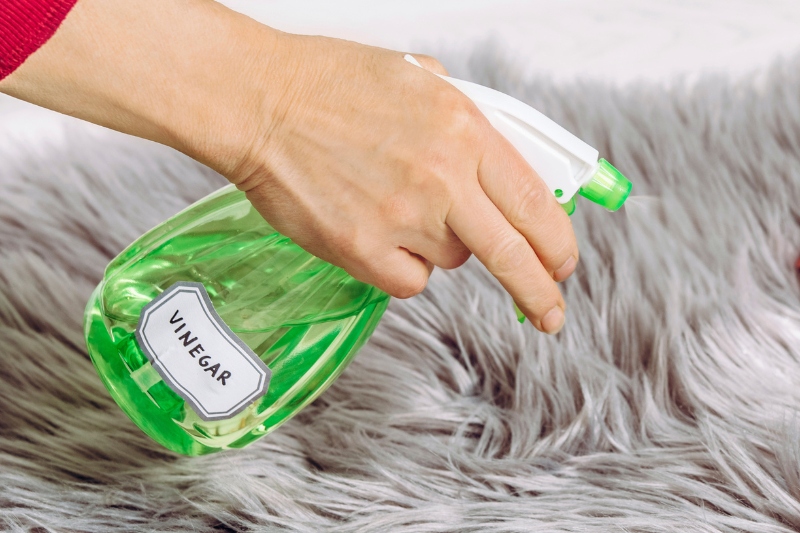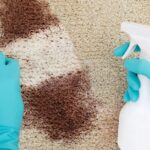Nan’s always going on about cleaning stuff with vinegar. According to her, it’s great at removing stains and odours on all kinds of surfaces, including carpets!
To be honest, I wasn’t totally convinced by this logic of hers. So, I did some digging around.
Here’s what I found out…
It turns out that vinegar is safe to be used on carpets. But you’ve got to use white vinegar, otherwise, you’ll stain your carpet. And you must test the cleaning solution on a discreet patch of carpet before you use it on the rest.
Nan got it right again, it seems!
Keep on reading to find out when you can use white vinegar to treat a carpet, more details on what vinegar you need to use, and when you shouldn’t use vinegar to clean a carpet!
When Can You Use Vinegar on Carpets?
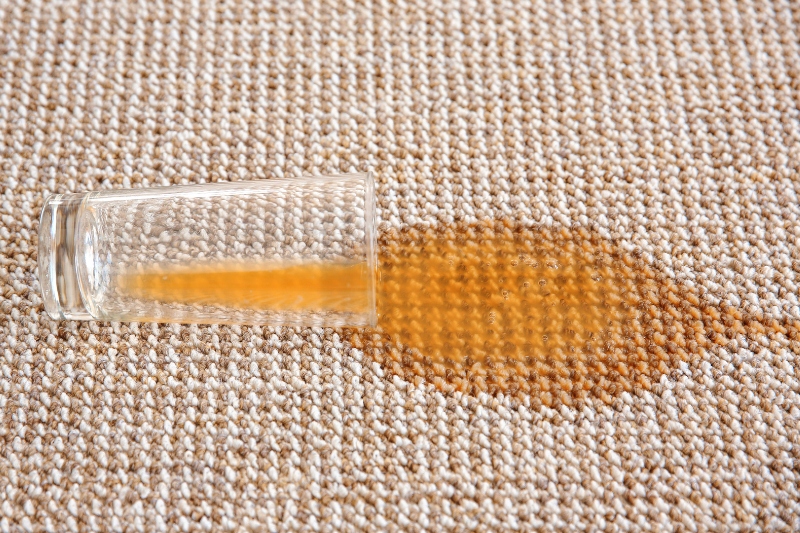
White vinegar can be used to mop up a variety of spills and stains from carpets.
It can also act as an odour neutraliser, and can be used alongside other neutral cleaning goods, like bicarbonate of soda!
Here are some examples of ways vinegar can be used on carpets:
- White vinegar can be used to remove vomit, both human and pet varieties, from a carpet.
- White vinegar can help to eradicate those pesky coffee marks that someone left on your rug!
- If someone tips some orange juice over your carpet, don’t fret, white vinegar is there to save the day!
- Got yourself into a gluey state? White vinegar is going to rescue your carpet and rid it of glue – it can even remove old glue mess too!
Tips to remember when using vinegar on a carpet:
- Test first – Find a small, inconspicuous patch of carpet and put some vinegar on it. If there are no adverse effects (damage/discolouration), you can continue using the product.
- In most cases you will need to dilute the vinegar first and then use it. For example, you could mix some vinegar with water in a spray bottle.
- Blot don’t scrub the carpet.
- Only mix vinegar with water or bicarbonate of soda. If you mix vinegar with other types of cleaning products/harsh chemicals you can create dangerous fumes.
- Keep kids and pets out of the room when you’re carrying out a treatment – You don’t want anyone traipsing all over the carpet when it’s being/been treated.
- Open plenty of windows, so fresh air can circulate inside the room – This will help with the drying process and it’ll also remove some of the vinegary stench.
- Remember to remove excess vinegar form the surface when you’re done – Just blot the carpet with a plain, damp cloth.
- Try to avoid pouring vinegar directly onto a carpet.
- Don’t go overboard with the vinegar – Remember less is best!
What Vinegar Do You Use to Clean Carpets?
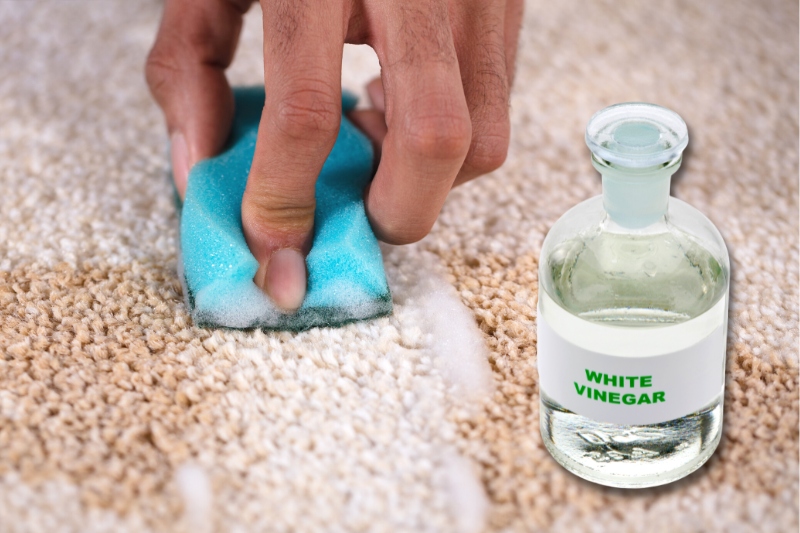
As noted above, the only vinegar you should use to treat a carpet is white vinegar.
The main reason for this is because it’s a clear liquid, so it won’t tarnish your carpets by leaving a nasty dye-filled stain on them.
Plus, white vinegar also contains acetic acid, which can cut through grime with ease, so it can quickly remove unsightly blemishes.
In addition to this, white vinegar is not considered a harmful chemical cleaner, so it can be safer to use in busy homes.
That being said, you should still use the product with caution and keep kids and pets out of the room when using the liquid.
You can buy white vinegar for a reasonable price and from several shops as well as online stores. See our guide on where to purchase white vinegar!
In some cases, you can use white wine vinegar to clean various surfaces around a home, including carpets, but you do this at your own risk.
It would, however, be better, cheaper, and arguably safer, to stick to white vinegar!
When Shouldn’t You Use Vinegar on a Carpet?
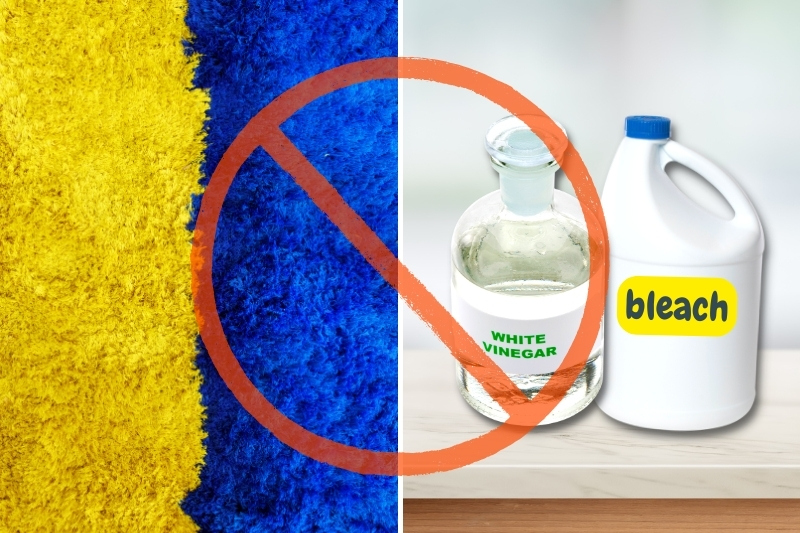
White vinegar is a non-toxic product that is generally safe to use around a home. Nonetheless, there are times when you shouldn’t use vinegar to clean a carpet. These occasions include:
- Delicate carpets, like ones made from wool and silk, shouldn’t be cleaned using white vinegar. The acetic acid in the vinegar can damage and discolour the material.
- You shouldn’t combine white vinegar with bleach/products containing bleach when cleaning a carpet. This will create nasty fumes, also known as chlorine gas.
Benefits of Using White Vinegar on Carpet
Here are the positives of using white vinegar to treat a carpet:
- Natural, non-toxic cleaning item that is safe to be used in busy homes.
- Can be used to remove toughened stains from carpets.
- Can be used to neutralise pungent odours on carpets.
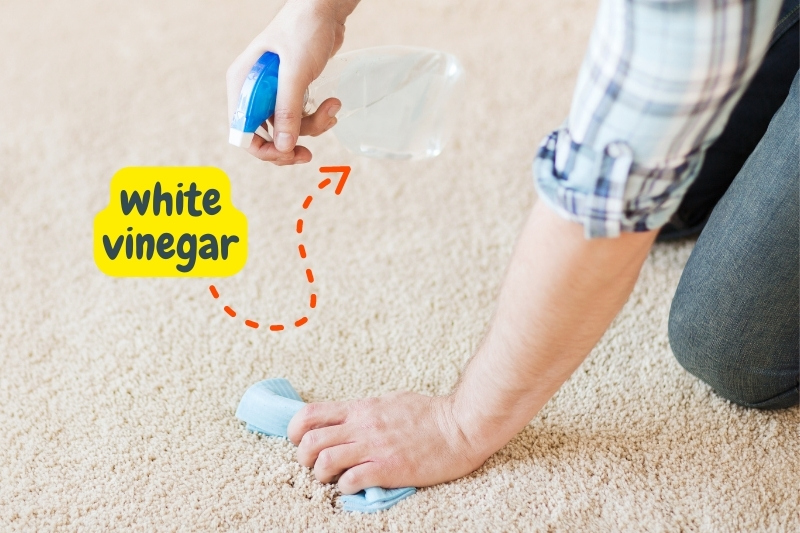
Drawbacks of Using White Vinegar on Carpet
Here are the negatives of using white vinegar to treat a carpet:
- Vinegar has a very strong smell, and it can be quite unpleasant to have around a home. Although the stench wanes after a while, it still lingers for some time.
- Vinegar cannot be used on all kinds of carpets, particularly delicate ones.
- If a blemish is very old, white vinegar alone may not be strong enough to remove the entire stain. In this case, you might have to use a different cleaning agent.
- Vinegar is not able to sanitise and remove bacteria from a carpet.
- White vinegar is not an alternative to an official carpet cleaner. White vinegar cannot be used to clean an entire carpet because it’s purpose is to treat a particular section of a carpet. To clean an entire carpet, you need to use an official carpet cleaning product.
Final Thoughts
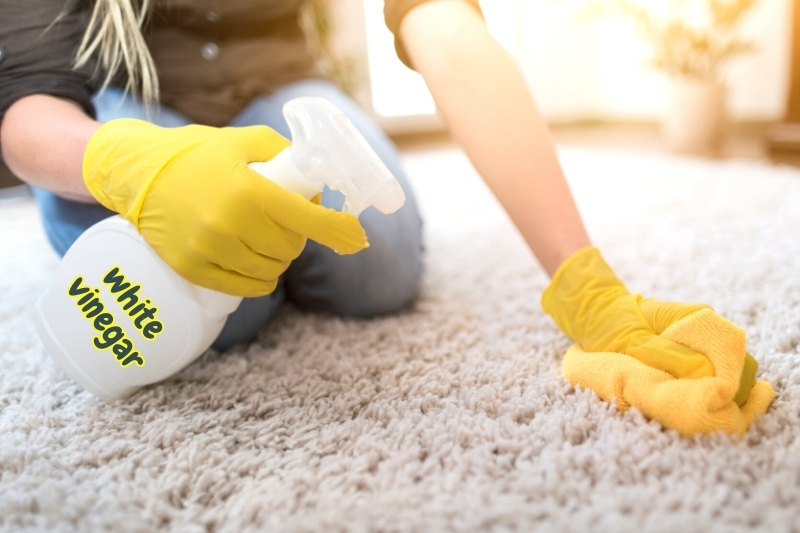
Vinegar can be used on carpets, it’s a safe and non-toxic product to use in family homes, and if used correctly, it can remove blemishes and aromas from a carpeted surface with ease.
However, you’ve got to make sure that you use white vinegar to clean your carpets, and you must still act with care when using said cleaning agent.
Plus, you need to keep in mind that vinegar cannot be used on all kinds of carpets, namely ones made from animal fibres.

Bethan has a passion for exploring, reading, cooking and gardening! When she’s not creating culinary delights for her family, she’s concocting potions to keep her house clean!
